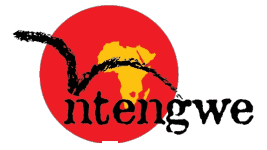Welcome to the Resource Centre, a comprehensive source of information on our Programs, discover our Annual Reports and Publications
About the Resource Centre
Ntengwe’s Resource Centre is a library that hosts, comprehensive, reliable, and up-to date information on thematic areas related to our programs.
 Purpose
Purpose
Our strategy – to Action to end Poverty, protect our Environment and ensure that our communities achieve a better and more sustainable future, and our Strategic Plan 2017-2022 aims to build a better world for and with our communities. An important aspect of this work is to further develop our local, national and international knowledge culture, capacity, and systems. The Resource Centre plays an important role for our partners, alliances, networks, academia, thematic experts and the public.
Our Library
Our library provides access to full-text publications, reports, toolkits, guidelines, and video clips from Ntengwe in areas linked to our thematic areas.
Links to Ntengwe’s Resources
- Animations, and Short Films
- Assessments and Evaluations
- Briefs, Fact Sheets and Brochures
- Case Studies and Success Stories
- Newsletters
- Policies and Strategies
- Reports
Ntengwe for Community Development’s publications range from a depth of films, documentaries, music CD’s, on HIV and AIDS, property and inheritance rights issues on children’s rights in support of orphans and vulnerable children.
MMUSINSIMUKE (WAKE-UP)
A 60 Minute Educational Video Drama
Ntengwe for Community Development pioneered its projects in Binga with an HIV prevention film called Musinsimuke (“Wake-Up”). Most particularly, the Musinsimuke (“Wake-Up”) film, although produced to increase HIV and AIDS awareness serves to project the identity of the Tonga people. The film is the first HIV and AIDS film produced entirely in Tonga, using local Tonga actors, with its main audience being rural Tonga-speaking youth in the Zambezi Valley. The film has been translated into English and French. The film directed by Elisabeth Markham was produced in 2000 and won the National Arts Merit Award (NAMA) for its contribution in the fight against HIV and the message to the most vulnerable group of young people and is judged one of the best genre of films to educate and entertain young people in Africa.
Synopsis
Sixteen-year old Luzibo moves from the rural areas to the Binga Growth Point to complete her education. She stays with her Aunt Julia and cousin Buumi in Binga Back Harbour. Due to poverty she is lured into the world of drinking and men. She is advised by a local woman to use condoms but ignores the warning. When she meets Manjolo Mwinde, a young artist who hawks his crafts in Binga, she falls in love with him and her life changes. The reality of HIV/AIDS hits when she learns that Laimon, whom she had a casual fish-for-sex relationship, is in hospital dying of AIDS. This realization turns her world upside down. Pregnant by Manjolo, she miscarries and realizes she is sick. She goes for an HIV test and it is positive. She tells Manjolo everything, determined to straighten out her life. Manjolo is devastated, gets drunk and flees to his rural home where he decides to kill himself. Luzibo comes to his rescue and together they live positively and become peer educators fighting against the spread of HIV.
The film can be purchases from Media for Development Trust
TULI BAMUCHAALA – WE ARE THE ORPHANS
CD and Documentary film
Ntengwe for Community Development worked together with world renowned musician Oliver Mtukudzi and the Mutubambile Children’s Choir in Binga throughout 2003 in support of children in Binga District orphaned by HIV and AIDS.
Binga is an area that has been ravaged by HIV and AIDS. Many children have found themselves orphaned, left destitute and their inheritance rights ignored. The CD was produced to enable children to help themselves through their music. Not only financially but also in dealing with their loss, to educate others on the realities and ravages of HIV and AIDS. The children wrote their own lyrics reflecting their lived experience of their losses and their music is a powerful conversation-starter in a time that addresses sensitive subject matters. This form of art that dared to wade into these deep waters was more vital than ever for the choirmaster and Oliver Mtukudzi who joined the project. Oliver fine-tuned the songs, adding his distinctive style and voice to the music. Not only did Oliver Mtukudzi add his music and vocals to the CD but he also put an enormous amount of time and effort into editing the music at his own studio. The documentary film, directed by Elisabeth Markham, records Oliver Mtukudzi’s arrival in Binga in January 2003 and tracks the process of recording the CD. This event was also observed by Jeff Chu of Time Magazine and was featured in the “Singing the Walls Down”, in Time – Europe of 3rd March 2003. The documentary film gives an insight into the lives of children orphaned by AIDS as well as celebrating the 200 children orphan choir working with one of Zimbabwe’s best known musicians.
The CD is available internationally through the Oneworld website at the special link:
http://www.oneworld.co.za/ProductSpecific.asp?uref=&ProductCode=SLCD082&OrderID=&AffiliateID=5000
 Oliver Mtukudzi began his career in professional music before Zimbabwe’s independence, marking that historic event with the release of his album “Africa”, recorded with the Black Sprits – his backing group up to today. Over quarter of a century of song writing, performance and producing, Oliver has developed a distinctive blend of Zimbabwean jiti, South African mbaqanga and his own inimitable vocal and instrumental style. His warm presence has brought life to many major roles in Zimbabwean feature films, including Jit (1990), Neria !991), and Shanda (2003). He also wrote the film score for Ntengwe’s first film, “Musinsimuke – Wake Up”. His phenomenal success has increased rather than diminished Oliver’s concern for the problems of his country, in particular the HIV and AIDS pandemic and the situation of the orphans it leaves in its wake.
Oliver Mtukudzi began his career in professional music before Zimbabwe’s independence, marking that historic event with the release of his album “Africa”, recorded with the Black Sprits – his backing group up to today. Over quarter of a century of song writing, performance and producing, Oliver has developed a distinctive blend of Zimbabwean jiti, South African mbaqanga and his own inimitable vocal and instrumental style. His warm presence has brought life to many major roles in Zimbabwean feature films, including Jit (1990), Neria !991), and Shanda (2003). He also wrote the film score for Ntengwe’s first film, “Musinsimuke – Wake Up”. His phenomenal success has increased rather than diminished Oliver’s concern for the problems of his country, in particular the HIV and AIDS pandemic and the situation of the orphans it leaves in its wake.
WHEN THE COWS COME HOME
30 minute documentary film
HIV and AIDS is a widow and orphans-creating disease. Wives are blamed for having infected the husband, which expose them to domestic violence. Property grabbing from women and children, who are happening in the region today is a symptom, a cause and a consequence of poverty and breaking down of social norms, family ties and social safety nets. Property grabbing has left women and vulnerable and orphaned children in the situation of distress and poverty but little attention has been given in development agenda.
Responding to property grabbing, Ntengwe for Community Development implemented a program to document and test community interventions to secure women´s and girls´ property rights. Participatory community research examined property grabbing and factors that limit women and girls from realizing property and inheritance rights. Women and girls were trained as peer mobilizers in Legal Rights and Advocacy of change agents. “When the Cows Come Home”, the docudrama film tracks women and girls in Binga discovering and reclaim their property. Over 600 women have so far re-gained their property. Presenter, Ntengwe Director, Elisabeth Markham is devoted to ensuring the availability of comprehensive legal rights information, supported and tracked by government and the traditional leadership, to grant rights to women and girls as individual rights holders and as a special interest group.
The key piece of legislation that Ntengwe is dealing with, and trying to operationalize, is the Administration of Estates Amendment Act No 6 of 1997. The Act applies to any person to whom customary law applied at the time of death which includes spouses by traditional or legal marriage, and their children, if there is no will. It repealed the provisions of the earlier Act, giving women in customary marriages, the right to inherit property from their husbands. Ntengwe’s issue is not at one of legislation. Instead to find that firstly, in this isolated community of Binga, awareness of the law is low. And, secondly, given that it might go against traditions and practices (that largely benefit men), there is resistance to applying the law. For this reason Ntengwe produced the documentary film “When the Cows Come Home” to create awareness on existing laws and legal frameworks that protect women’s property and inheritance rights.
Synopsis
Three women in Binga District deprived of their inheritance……The law of Zimbabwe protects them but how well is it known and implemented in their isolated community. The film follows 30 year old Sylvia and her mother, and 16 year old Twapegwa through a process of learning about their rights in structured workshops and carrying this knowledge out into their community. As gradual changes in attitude take place in the community, they find support from their Chief and others to confront the property grabbers.
The film can be purchases from Media for Development Trust










